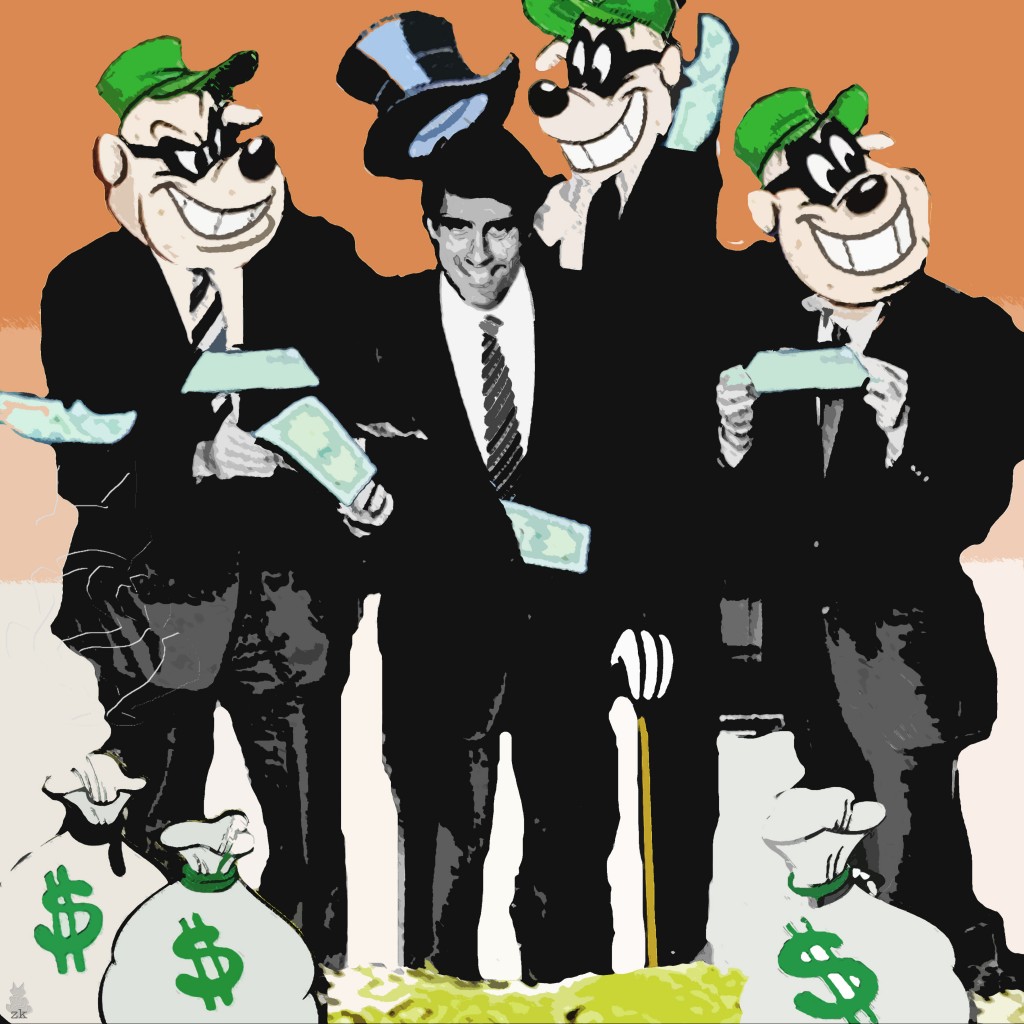There is an unwritten social contract that says the wealthy will take just good enough care of the poor that they don’t revolt.
When the poor people wake up and the rich people have all the money they don’t say, “oh cool, the rich people have all the money.” They revolt.
The fundamental problem is one of short-term gain versus long-term security. We’re a capitalist country, I got it, and I’m all for it. You don’t like welfare? Cool, I understand that too. But the truth is we are always going to have some sort of government intervention in our lives. And the other truth (that you may or may not want to admit) is you want the government to have some sort of involvement in our lives.
When natural disasters like Katrina or Sandy happen who is going to clean up and start the rebuilding process? Who is going to clear the water from the streets? Who is going to coordinate and communicate with the people? Who is going to make sure power gets back on? Who is going to make sure that the people that have suffered the most have food and water and shelter? 5 days after super storm Sandy 2.4 million people still did not have power. FIVE DAYS after!! Are you going to turn the power back on if the government doesn’t take charge?
Its our job, its our social responsibility, whether we like it or not that the haves chip in and contribute to make sure the have nots are adequately taken care of. The most basic way is of course by paying taxes. And whether you like that or call that a welfare state is almost irrelevant. Because its better than the alternative. An alternative in which you have literally and figuratively starved the poor of such basic first world country rights as food, shelter, health care, and employment that they no longer sit by idly and watch. They take matters into their own hands and revolt.
Still think this is a liberal fairy tale? Have you been to the Congo or Rwanda lately? Where everyday people are losing their lives as the battle for gold, diamonds, timber, and coltan that make our electronics function has been going on for years. More than 5 million people have been killed since the Second Congo War broke out in 1998 in addition the 2 million displaced refugees.
Have any friends in South America? Maybe they have told you stories about how they need armed security to watch over them and their families. Or maybe they told you a story about how someone they know was robbed, kidnapped and held for ransom. In 2011 Venezuela had a murder rate of 67 per 100,000 people, neighboring Columbia had 32 per 100,000, and 14 per 100,000 in Mexico. The highest rate in 2010 was in Honduras, which suffered 82 murders per 100,000 inhabitants, according to the UN Office on Drugs and Crime. These murder rates are all more than 2x higher than the global average of 6.9 murders per 100,000 people.
These places are not that far from us, they are not in another universe, they are in countries that are just a few hours away on a plane ride.
By definition, Economics is the study of how society allocates scarce resources and goods. And when too many of those scarce resources are allocated to too few members of society you no longer live in New York City.
You live in Mexico City. Where 51.3% of the population lives below the poverty line and the top 10% controls over 41% of the nation’s household income.
So next time some politician goes off ranting about how all your problems are caused by a government that is too big stop for a second and think. Be grateful for the police officers outside keeping you safe, the firemen on call in case you have an emergency, the teachers in the schools educating your children, the military abroad keeping our enemies in check, the sanitation worker making sure your garbage gets picked up, and all the others who have committed their lives to public service so that we, the public, can continue to go on and chase the American Dream.

